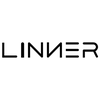World Hearing Day, observed annually on March 3rd, is a global initiative aimed at raising awareness about hearing loss and promoting ear and hearing health care. Established by the World Health Organization (WHO), this day serves as a platform to advocate for hearing health, prevention, and access to hearing care across the globe. In this article, we’ll explore the origins of World Hearing Day, its significance, the role of hearing healthcare professionals, and how everyone around the world can contribute to this important cause.
Hearing Loss As a Concern Around the World
Hearing loss is often considered an “invisible disability.” More than 20% of the world's population have some degree of hearing loss in their better ear. An estimated of over 5% of people all over the world experience moderate to profound levels of hearing loss.
For babies and young children, hearing loss can make it difficult to hear and learn spoken language. For the elderly and older adults, it can lead to feeling alone and a higher risk of problems such as cognitive issues (dementia) and even falls.
Hearing loss is the third most common disability for everyone, and it's the top cause for people over the age of 70. Even though it might not seem like a minor concern for some, hearing loss is rather a major global health concern.
As a result of this concern, WHO has established World Hearing Day. Here are some things to learn about World Hearing Day:
- The Start of World Hearing Day
- The Significance of World Hearing Day
- The Role of Hearing Healthcare Professionals
- How To Make a Difference on World Hearing Day
1. The Start of World Hearing Day:
In the year of 2007, the World Health Organization's Office of Prevention of Blindness and Deafness launched World Hearing Day. However, it originally started in 2001. On March 3rd of that year, before it was known as World Hearing Day, this special event has been known as National Ear Care Day in China.
Later, in 2007, it was officially recognized as International Ear Care Day during the First International Conference on Prevention and Rehabilitation of Hearing Impairment. It was then evolved into World Hearing Day.
The main goal of World Hearing Day was to tackle growing concerns about the rising rates of hearing loss and related problems worldwide. March 3rd was picked for the occasion, representing the two ears with the 3/3 date.
2. The Significance of World Hearing Day:
World Hearing Day has several goals, all aimed at showing how important hearing health is and how hearing loss affects people, communities, and societies. This awareness focuses on reducing the shame linked to hearing loss, encouraging preventive steps, and supporting hearing care that everyone can access around the world.
Also, this special day stresses the importance of identifying and treating hearing problems early by providing early intervention. It is important to take a swift course of action in recognizing and treating hearing loss, which is vital in lessening the impact of hearing issues.
3. The Role of Hearing Healthcare Professionals:
World Hearing Day is a chance to acknowledge and value the vital contributions made by hearing healthcare and other health professionals. Audiologists, otolaryngologists, and other hearing health specialists play a critical role in identifying and treating issues related to hearing.
On this day, many of these hearing healthcare professionals get involved in community outreach programs, providing free screenings, educational sessions, and consultations. Their goal is to enhance awareness and make hearing healthcare services more accessible.
These professionals are also at the forefront of research and innovation in the field. They strive to develop advanced technologies and treatment methods that can help improve the lives of individuals facing hearing loss or hearing challenges. Through their active participation in World Hearing Day events, these hearing healthcare professionals not only showcase their expertise but also contribute significantly to the global efforts addressing challenges in hearing health.
4. How To Make a Difference on World Hearing Day:
While hearing healthcare professionals play a central role, the involvement of the public is equally vital in making World Hearing Day extremely impactful. Here are some ways individuals can contribute:
- Spread Awareness
- Encourage Regular Hearing Check-Ups
- Support Hearing-Friendly Policies
- Engage in Fundraising Activities
- Learn Basic Sign Language
A. Spread Awareness:
Share information about World Hearing Day on social media platforms, using hashtags such as #WorldHearingDay and #HearTheFuture. Educate friends, family, and colleagues about the importance of hearing health and the impact of hearing loss on individuals and society.
B. Encourage Regular Hearing Check-ups:
Advocate for regular hearing check-ups, emphasizing the significance of early detection and intervention. Encourage people to schedule hearing screenings, especially if they are exposed to loud environments or are at risk of hearing loss due to various factors.
C. Support Hearing-friendly Policies:
Raise awareness about the need for policies that prioritize hearing health, including access to affordable hearing aids and assistive technologies. Support initiatives that promote diverse accommodations for individuals with hearing loss, such as captioning and sign language interpretation.
D. Engage in Fundraising Activities:
Contribute to fundraisers and charities that focus on providing hearing aids and support to those who cannot afford them. Many organizations work tirelessly to make hearing care accessible to underserved populations, and public support can significantly amplify their impact.
E. Learn Basic Sign Language:
Consider learning basic sign language with individuals who are Deaf or Hard of Hearing and utilize sign language as their primary mode of communication. This small effort enhances communication and can go a long way in fostering diversity and breaking down communication barriers.
Conclusion
World Hearing Day is not just a day to acknowledge the challenges associated with hearing loss; it is a call to action for individuals, communities, and nations to work together in promoting hearing health and accessibility to care.
By understanding the origins, significance, and role of hearing healthcare professionals and by actively participating in initiatives to support those with hearing loss and hearing health challenges, we can collectively contribute to creating a world where everyone can enjoy the gift of sound. Celebrate World Hearing Day, and let the echoes of awareness resonate for a better and more diverse future.
References:
- Chadha, S., & Cieza, A. (2017). Promoting global action on hearing loss: World hearing day. International journal of audiology, 56(3), 145-147. https://doi.org/10.1080/14992027.2017.1291264
- Clark, J. L. (2017). World Hearing Day. The Hearing Journal, 70(3), 6. https://journals.lww.com/thehearingjournal/FullText/2017/03000/World_Hearing_Day.2.aspx
- Wilson, B. S., & Tucci, D. L. (2021). Addressing the global burden of hearing loss. The Lancet, 397(10278), 945-947. https://doi.org/10.1016/S0140-6736(21)00522-5
- Pierson, F. (2023). World Hearing Day Champions ‘Ear and Hearing Care for All’. Leader Live. https://leader.pubs.asha.org/do/10.1044/2023-0213-world-hearing-aud/full/
- World Health Organization. 2024. Ear and hearing care for all! Let’s make it a reality. https://www.who.int/campaigns/world-hearing-day/2024
- World Hearing Day 2024. https://worldhearingday.org/
- Center for Disease Control and Prevention. 2024. World Hearing Day. https://www.cdc.gov/nceh/features/world-hearing-day/index.html
***Disclaimer: The content presented here serves general informational purposes and is not intended as professional advice or a replacement for medical consultation. It is essential to seek personalized guidance and assistance from a qualified physician or hearing healthcare provider for any specific questions, concerns, or individual health conditions related to hearing. A professional in the field can offer a comprehensive evaluation and suitable recommendations based on your unique circumstances. Ignoring or postponing seeking medical or professional help may have negative impacts on your health. Always consult with a healthcare professional for precise diagnosis, appropriate treatment, and personalized advice concerning your hearing health.***


![Linner Mercury Clarity OTC Hearing Aids [FSA & HSA Eligible] Linner](http://www.linnerlife.com/cdn/shop/files/Linner-Mercury-Clarity-OTC-Hearing-Aids-_FSA-_-HSA-Eligible_-Linner-110038953.webp?v=1725853434&width=360)

![Linner Mars OTC Hearing Aids [FSA & HSA Eligible] Linner](http://www.linnerlife.com/cdn/shop/files/Linner-Mars-OTC-Hearing-Aids-_FSA-_-HSA-Eligible_-Linner-110039213.webp?v=1725865495&width=360)
